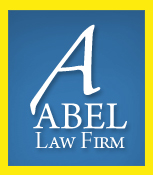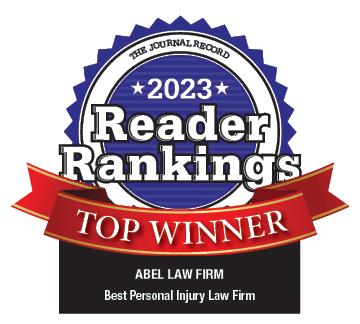An ancient common-law maxim makes an act of an agent the act of the principal. Wathor v. Mutual Assur. Adm’rs, Inc., 2004 OK 2, 87 P.3d 559, 562 (dissent, f.n. 3) Agents are not excused for committing tortuous or criminal acts on behalf of their principals but will be jointly liable with them. Id. The terms “agent” and “independent contractor” are not necessarily mutually exclusive. Milligan v. Anderson, 522 F.2d 1202, 1207 (10th Cir. 1975); Cahill v. Waugh, 1986 OK CIV APP 4, 722 P.2d 721, 724. In fact, by definition, “… an independent contractor is an agent in the broad sense of the term in undertaking, at the request of another, to do something for the other.” Id. “As a general rule the line of demarcation between an independent contractor and a servant is not clearly drawn.” Flick v. Crouch, 1967 OK 131, 434 P.2d 256, 260.
Manifestations Of Principal & Reasonable Reliance Of Third Party
Although persons may be “independent contractors” in relation to the persons hiring them, they may be acting as the hirers’ agents and become liable to third parties under the doctrine of apparent or ostensible agency. It is the same respondeat superior making employers liable for the acts of their servants acting within the scope of their employment and “… rests on the premise that, when exercising delegated authority, the employee stands under the complete control of the employer.” Nelson v. Pollay, 1996 OK 142, 916 P.2d 1369, 1374 (f.n. 23). “The existence of actual authority between principal and agent is not a prerequisite to establishing apparent authority. Apparent authority results from a manifestation by the principal to a third person that another is his agent. The manifestation may be made directly to a third person or to the community by signs or by advertising. … But, ‘apparent authority exists only to the extent that it is reasonable for the third person dealing with the agent to believe that the agent is authorized.’” Stephens v. Yamaha Motor Co., Ltd., Japan, 1981 OK 42, 627 P.2d 439, 441.
Signs Of Who Is In Control
In Stephens, a man was injured allegedly as the result of improper mounting of a motorcycle tire at a Conoco station. The plaintiff claimed the station was the apparent agent of Conoco and he had relied on the reputation of Conoco in choosing the tire service, but evidence showed Conoco had no control of the operation and merely provided signage. Id. The trial court found Coe v. Esau, 1963 OK 1, 377 P.2d 815, controlling, in which it was said, “It is … a matter of common knowledge and practice that distinctive colors and trade mark signs are displayed at gasoline stations by independent dealers of petroleum product suppliers. These signs and emblems represent no more than notice to the motorist that a given company’s products are being marketed at the station.” Id. at 818; Stephens, 627 P.2d at 440. The court strongly rejected the plaintiff’s claim he thought Conoco authorized the tire service as having “’… no support in reason or authority.’” Id. at 442.
In contrast, in Lewis v. Central Oklahoma Medical Group, Inc., 2000 OK CIV APP 26, 998 P.2d 202, 205, PruCare argued physicians in Central Oklahoma Medical Group (COMG) were independent contractors, but it was a jury question whether they were ostensible agents of PruCare. The plaintiffs testified they relied on PruCare for their healthcare, believed the physicians were PruCare physicians and had never been treated by those doctors prior to enrolling in PruCare. “In fact, PruCare assigned the Lewis’ primary care physician and the subsequent physicians were selected by the primary care physician.” Id. To make an appointment, Plaintiffs would call the PruCare telephone number (identical to the COMG number). The building directory listed the medical offices as PruCare offices. The physician who formed COMG testified he was recruited to establish a PruCare HMO and PruCare provided the start-up money and all expenses, including salaries, medical supplies, telephone, equipment, maintenance, administrative supplies, insurance (including malpractice insurance), employee benefits and professional fees. Id.
Doctor As Ostensible Agent Of Hospital
“In most jurisdictions, the theory of respondeat superior is not extended to a hospital if the doctor is considered a private self-employed contractor.” Nelson, 916 P.2d at 1374 (f.n. 23). In Smith v. St. Francis Hosp., Inc., 1983 OK CIV APP 58, 676 P.2d 279, the hospital denied liability for the acts of a doctor who was an independent contractor employed by a company that contracted with the facility to provide emergency-room staff. Id. at 281. “However, a close examination of the terms of this contract reveals merely an attempt by Hospital to disclaim responsibility for emergency care services in its facility, while maintaining substantially the same or, arguably, greater control as exercised over all staff physicians admitted to practice at Hospital.” Id. The “independent contractors” had to be members of the hospital medical staff, follow hospital rules and regulations, be reviewed and approved, meet hospital quality-of-care standards, and, when appropriate, request consultation from staff physicians. In addition, the hospital set doctor’s fees, did all the billing, and provided clerical and support personnel, instruments and supplies. The court concluded the physicians’ company was an agent of the hospital and its function was “… that of Hospital’s emergency room personnel agency.” Id. at 282.
Staff Doctor As Agent Of Hospital
A second doctor in Smith was on the hospital’s staff which did “… not necessarily make him an employee of that hospital.” Id. “Hospital held itself out to the public offering and rendering hospital services. It is entirely reasonable that patients entering Hospital through its emergency room properly relied upon Hospital’s representation that the treating doctors and staff of Hospital’s emergency room were acting on behalf of Hospital, and not as individuals.” Id. The court quoted from the Restatement (Second) of Torts § 429: “One who employs an independent contractor to perform services for another which are accepted in the reasonable belief that the services are being rendered by the employer or by his servants, is subject to liability for physical harm caused by the negligence of the contractor in supplying such services, to the same extent as though the employer were supplying them himself or by his servants.” Id.
Estoppel & Patients’ Expectations
If a patient looks to the hospital for care, an “agency by estoppel” can arise. The critical question is whether the patient is looking to the hospital for treatment. Id. If a patient “…looked solely to and relied upon Hospital for his treatment and was treated by medical personnel regulated and authorized by Hospital to render medical services in its emergency room, and because said personnel were placed by Hospital in a position of apparent authority to act on behalf of Hospital, Hospital is estopped from denying responsibility for the alleged negligence of its ostensible agents. Certainly, members of the public who avail themselves of a hospital’s emergency room services under these circumstances have a right to expect competent medical treatment from the medical personnel cloaked with ostensible authority by the hospital’s conduct which reasonably leads the public to believe that medical treatment will be afforded by physicians acting on behalf of the hospital, and not on their respective individual responsibility. Consequently the hospital must be held accountable for the negligence, if any, of its authorized emergency room physician regardless of whether or not he is an independent contractor by secret limitations contained in private contract between the hospital and doctor or by virtue of some other business relationship unknown to the patient and contrary to the hospital’s conduct and representations.” Id. at 282-283.
Hospital As Facility For Independent Doctor
A different result occurred when a child was seen in a hospital emergency room by a Dr. Price, her own family physician, and the hospital was merely the place in which she was treated by her own doctor. Weldon By and Through Weldon v. Seminole Mun. Hosp., 1985 OK 94, 709 P.2d 1058, 1059. Recognizing the respondeat superior or “agency by estoppel” theory advanced in Smith, the court distinguished the facts because in Smith there was the ”… absence of a pre-existing doctor-patient relationship.” Id. at 1060. In Weldon, the patient’s family “… had no basis for believing Dr. Price was acting in behalf of the Hospital. The Weldons were not looking to the Hospital to provide medical care; rather, the Hospital merely provided its facilities so that Dr. Price, exercising his own independent judgment, could render care. … [T]he Hospital was not the primary medical care provider.” Id. This was so even though Dr. Price had staff privileges, was furnished a rent-free medical office and home, free meals and a laboratory. The hospital did not pay him and he billed his patients for his fees. Id. It was “… a case of the traditional independent contractor relationship of a doctor and hospital.” Id. at 1061.
Who Is In Control?
As the cases illustrate, ostensible agency is estoppel. Principals are in control of whether the doctrine applies. It is only when principals present agents in such a way that reasonable people can expect them to be working for the principal that principals are then estopped from denying what appears to be true.
–Lynn B. Mares


